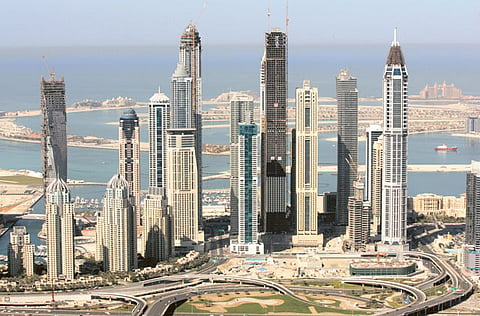Greater openness key to investment
GCC countries reported mixed results on the Corruption Perceptions Index this year

Not surprisingly, Gulf Cooperation Council (GCC) countries reported mixed results on the Corruption Perceptions Index (CPI) this year. Of the six countries, only Bahrain succeeded in advancing its position. The UAE and Kuwait managed to maintain their international ranking. However, Qatar, Oman and Saudi Arabia dropped several notches.
Berlin-based Transparency International issues the annual CPI, ranking countries based on perceived corruption. The 2010 report ranked 183 economies, up by five nations — ostensibly reflecting the possibility of obtaining solid data on more countries.
The CPI is produced based on results of up to 17 surveys and assessments, in turn carried out by numerous internationally renowned establishments including the World Bank, World Economic Forum and The Economist Intelligence Unit. These surveys and assessments look into matters such as bribery of public officials, kickbacks in public procurement and embezzlement of public funds.
Reviewed economies earn points based on perceptions expressed by business and academic professionals concerning ways of doing business in various countries. The respondents, which include local and expatriate residents, provide views about possible corrupt practices involving public officials in business deals. Undoubtedly, the report is not entirely objective, as respondents express their perceptions subjectively.
Scoring pointers
The CPI boasts a scale from zero to 10 points. Economies scoring below 7 are required to act to help restore integrity in the dealings of public officials. Some 25 economies including that of Qatar scored seven points and above.
With regard to performance of GCC countries, Qatar maintained its position as the best performer on the index among all Arab and Muslim countries notwithstanding the drop in its ranking by three notches to number 22 worldwide.
Nevertheless, with this result, Qatar remains ahead of both the US and France, which are ranked 24 and 25 respectively.
Still, it is feared that Qatar could see further erosion of its ranking if it continues the policy of discouraging local media sources discussing issues relating to alleged malpractices pertaining to hosting rights for international sporting events, notably World Cup 2022.
For its part, the UAE saw no change ranking number 28 worldwide — the second best result among Arab countries. The UAE scored 6.8 points in the 2011 report, up from 6.3 points a year ago. In effect, the progress is indicative of growing appreciation by entities doing the surveys and assessments of quality of information provided on the one hand and fresh efforts for combating wrongdoing.
Much to its credit, Bahrain overtook Oman as the third best performer in the GCC countries by advancing two notches to 46 globally. Clearly, the advancement reflects Bahrain's success in improving scoring from 4.9 points to 5.1 points in the latest report. The socio-political crisis emerging in mid-February has added to the argument for taking corrective steps to do away with administrative and financial corruption.
Major declines
Yet Oman saw its ranking dropping sharply by nine notches to number 50 worldwide.
This downturn depicts the need to open up the sultanate and thus limit conservative tendencies.
For its part, Kuwait maintained its ranking at 54 reflecting steady parliamentary efforts to stamp out alleged financial wrongdoing in the public sector. Saudi Arabia however slipped seven places to 57 globally. The retreat shows the adverse effects of ultra-conservative practices.
Undoubtedly, the GCC states cannot overlook the index's significance whilst seeking to attract foreign direct investments to help address economic challenges. It can't be disputed that indexes such as CPI ultimately influence choices made by international investors.
The writer is a Member of Parliament in Bahrain.
Sign up for the Daily Briefing
Get the latest news and updates straight to your inbox



